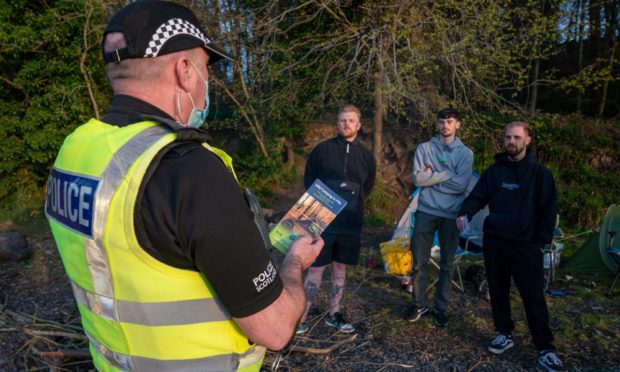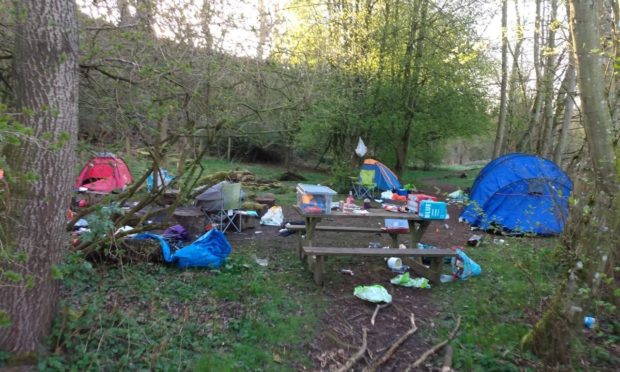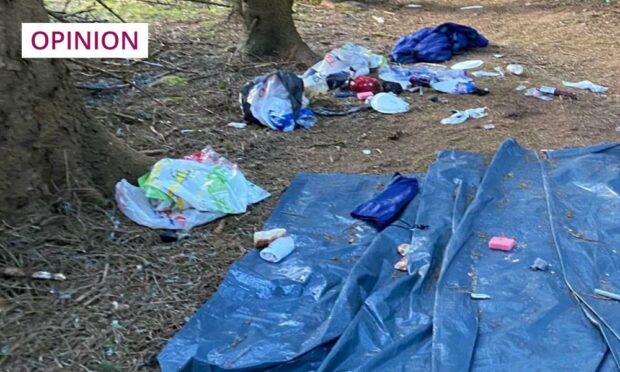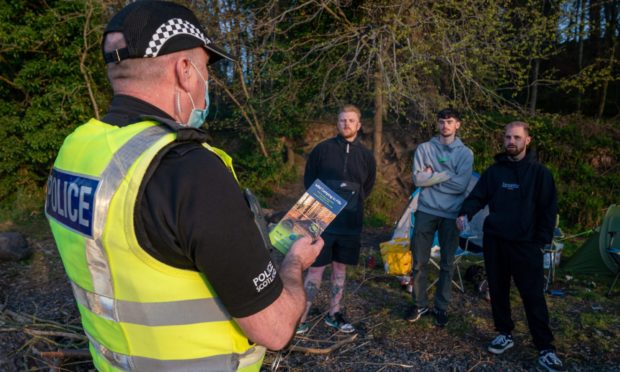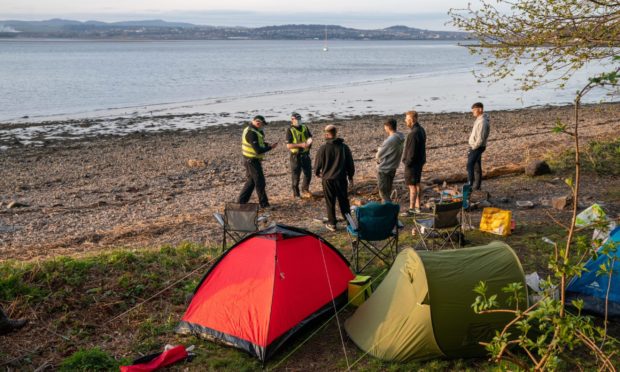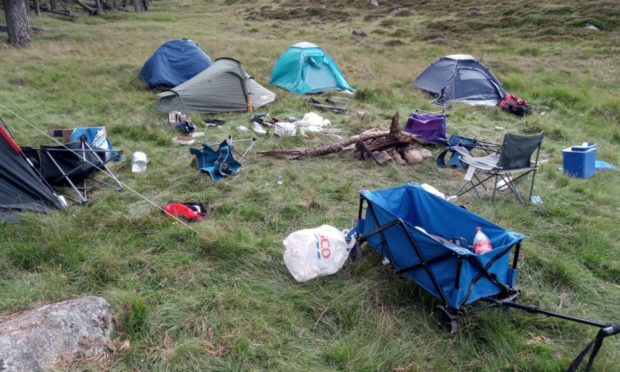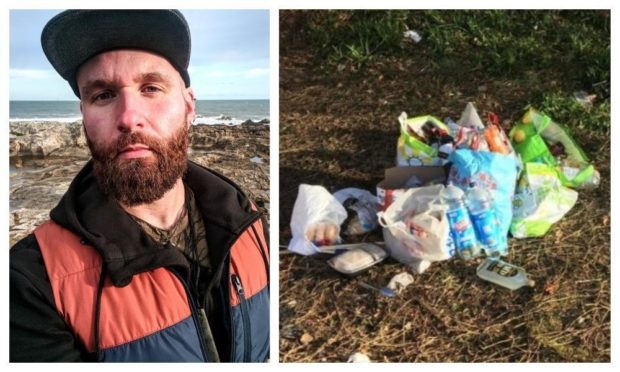More than three quarters of Scots believe there should be tougher penalties for ‘dirty camping’, our exclusive poll can reveal.
Pollsters Survation asked 1,000 people in Scotland three questions about the problem that has blighted rural communities and beauty spots.
Of those surveyed, 58% said they were either very or quite concerned about the problem.
As many as 78% believed there should be tougher penalties on those caught and 63% believed the situation would worsen this year.
Communities in Angus, Fife and Perth and Kinross have told of how anti-social campers have driven residents to breaking point already this year.

Richard Barron is chief operating officer with outdoor access group ScotWays.
He said: “There are a lot of people who work in the countryside see it as a problem.
“But you can feel it’s a lonely battle and that there are a lot of people who just don’t care.
“It’s really good to see that it’s a wider thing. It’s a huge number, in effect.”
Who is most concerned?
Highland communities are the most worried about the problem.
Broken down by region, 70% of people are concerned, 80% think the problem will get worse. And as many as 86% back tougher penalties.
Tougher penalties must be considered, particularly for repeat offenders.”
In Mid-Scotland, including Fife and Perth and Kinross, 68% expressed concern. 69% thought it would get worse and 78% want tougher treatment for offenders.
Most people in the North East also showed concern at 53% of those surveyed. While 57% agreed the issue would worsen and 76% wanted tougher action.
Landscapes and wildlife ‘at risk’
Stephen Young is head of policy at Scottish Land and Estates.
He said: “We’re pleased the poll shows the level of concern amongst the general public on this issue.
“We would urge politicians from all parties to recognise the depth of feeling on this issue.
“We agree that tougher penalties must be considered, particularly for repeat offenders.”
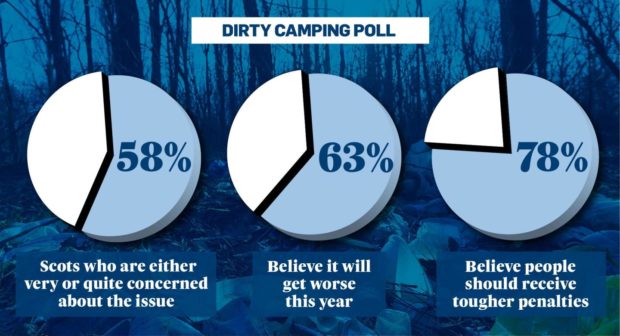
Scottish Land and Estates members backed, more education, long-term investment in infrastructure, such as public toilets and parking, as well as more access officers jobs.
Mr Young said: “The people of Scotland need to hear a coherent and consistent message about what responsible access is and how people can play their part in protecting Scotland’s habitats and scenery when visiting rural areas.”
He highlighted “underfunded” outdoor access services.
“Without the changes we have outlined, our valuable landscapes and wildlife are at risk. Along with the safety of visitors and rural residents.”
Will ‘dirty campers’ ever learn to ‘Tak it hame’?
Stuart Younie is chief executive officer of Mountaineering Scotland. He said the problem is common across society.
He said: “You only have to take a look around our towns and cities, and along the verges of roads, or count up the cases of both rural and urban fly-tipping. That shows this problem is neither new nor unique to the countryside.
It’s something that needs to be addressed society-wide through education as well as enforcement.”
Mountaineering Scotland coined the dirty camping name to distinguish anti-social behaviour from that of genuine wild campers.
The group has launched an anti-litter campaign #TakItHame .
Questionable results
Mr Younie continued: “These concerns really hit the headlines in the wake of the Covid-19 pandemic, with so many people spending their leisure time in Scotland’s countryside.
“Bye-laws to limit access have been tried, with questionable results, and the level of penalties for existing laws is almost academic as long as there remains a lack of resources for enforcement.
“Introducing huge fines or imprisonment for litter louts will change nothing because those who do leave rubbish and waste know there is so little likelihood of them facing even the existing penalties.
“But the answer isn’t to put barriers up. One thing this pandemic has done is underline the importance of access to the great outdoors to the physical and mental health of the population.”
Survation’s research was based on responses from more than 1,000 adults in Scotland between April 30 and May 4.
